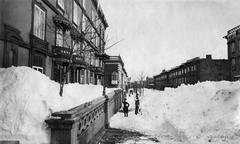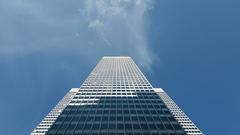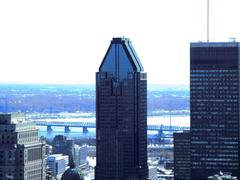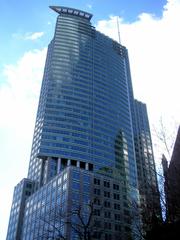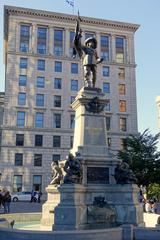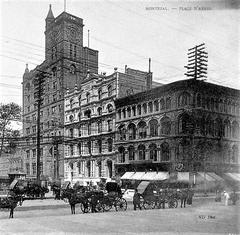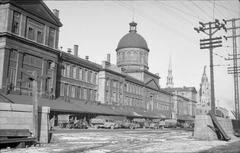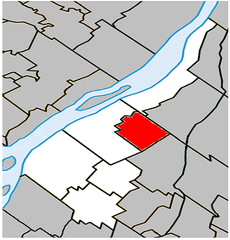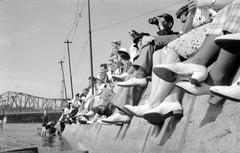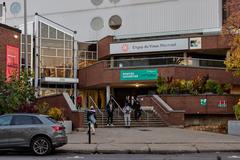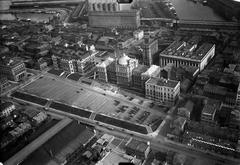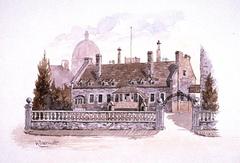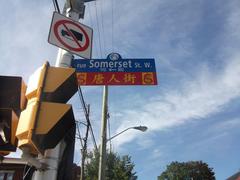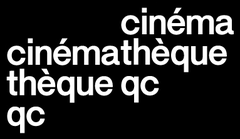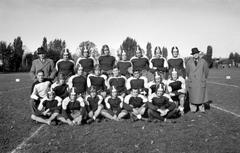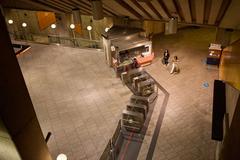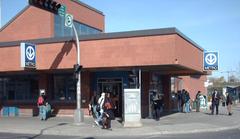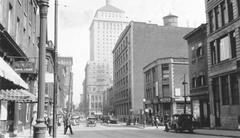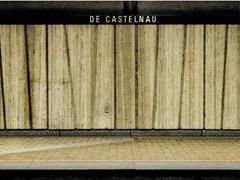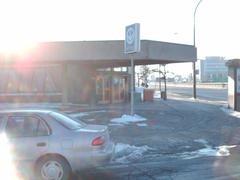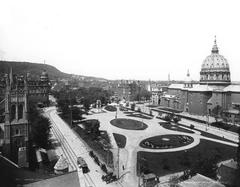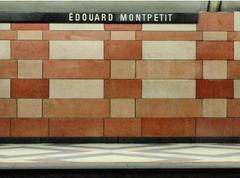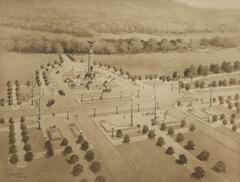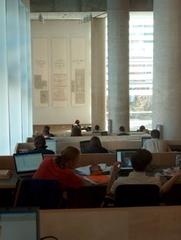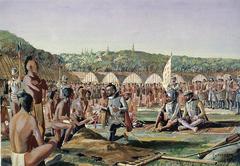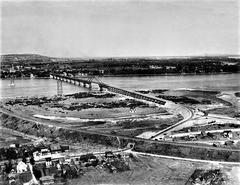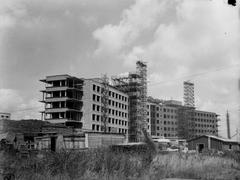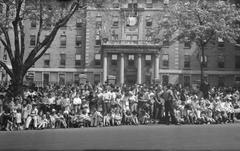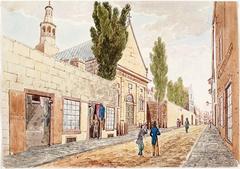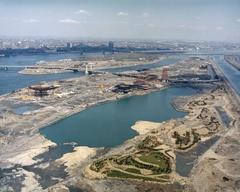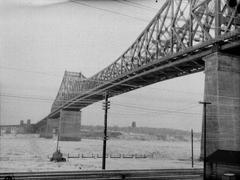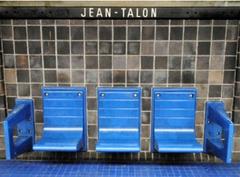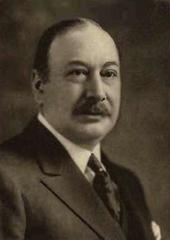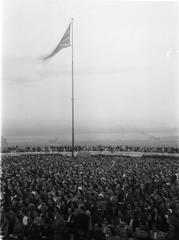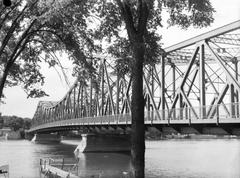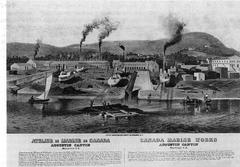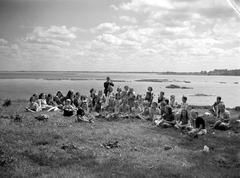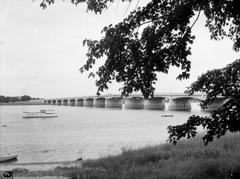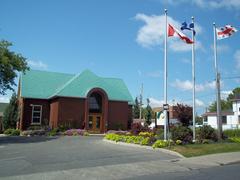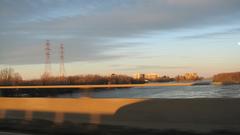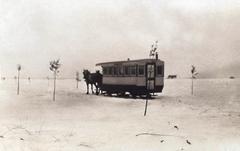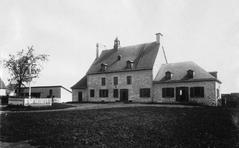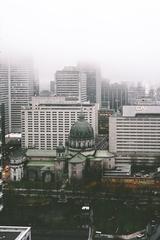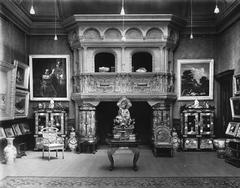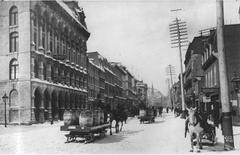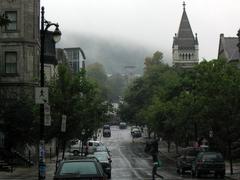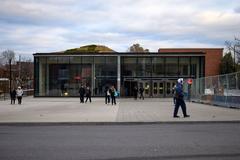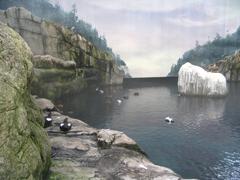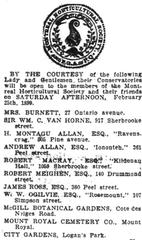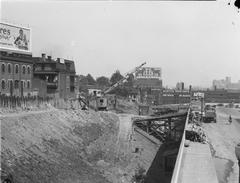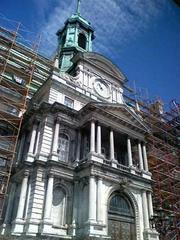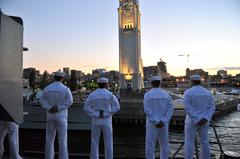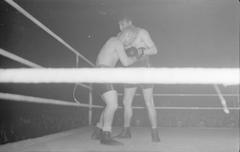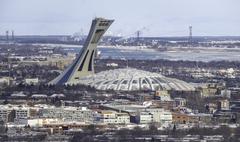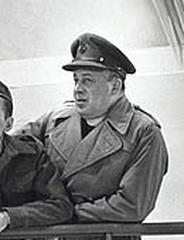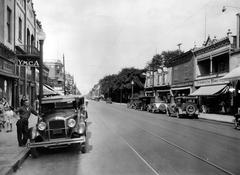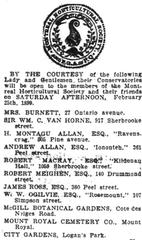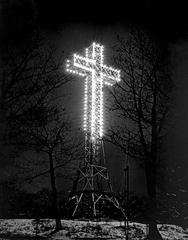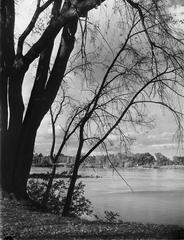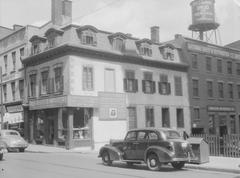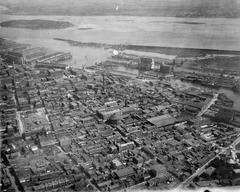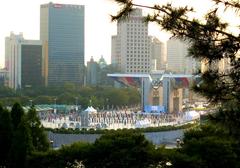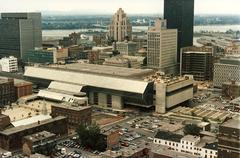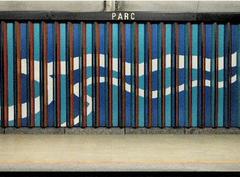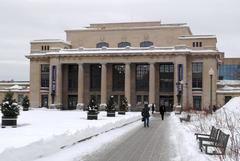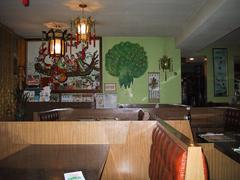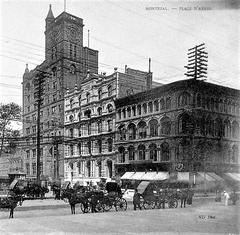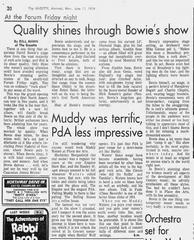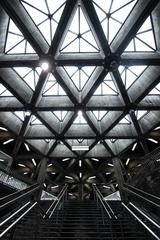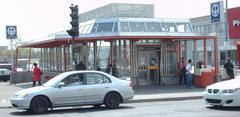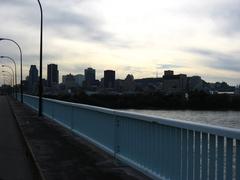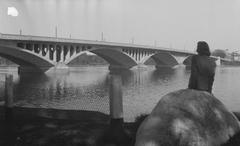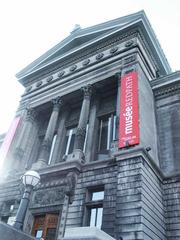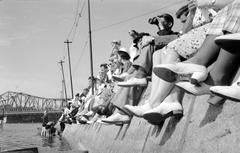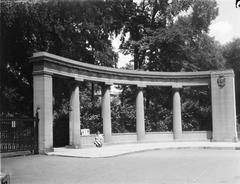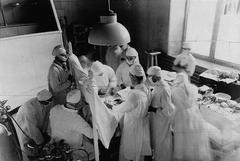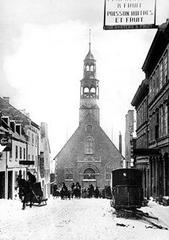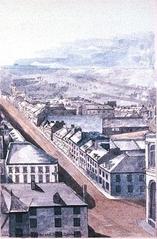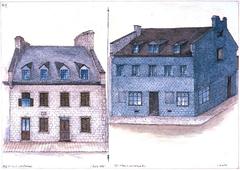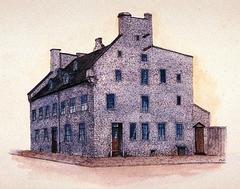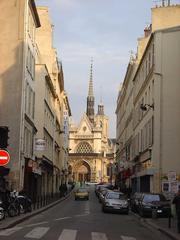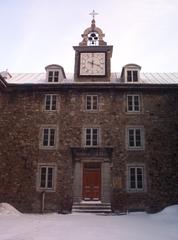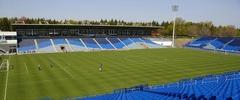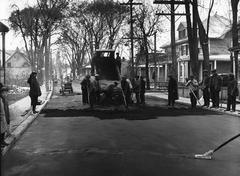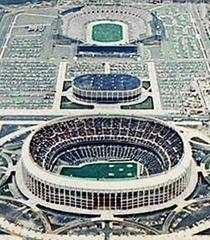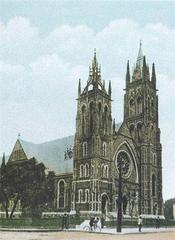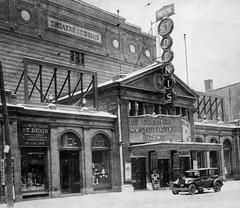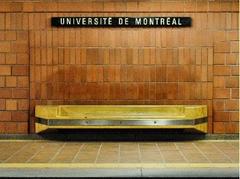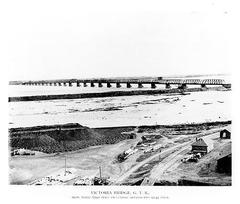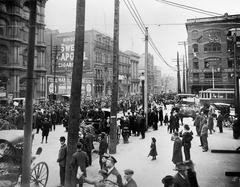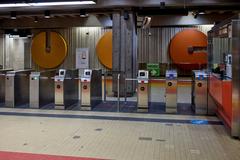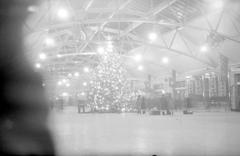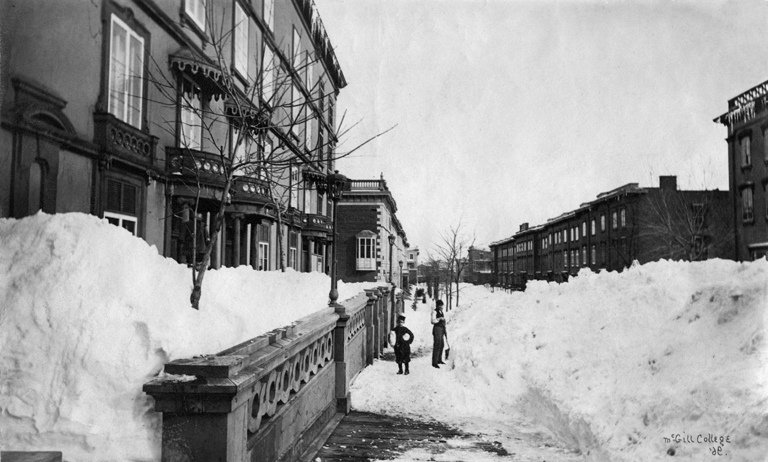
McGill College Avenue Montreal: Visiting Hours, Tickets, and Historical Sites Guide
Date: 14/06/2025
Introduction
McGill College Avenue is a distinguished boulevard in the heart of downtown Montreal, celebrated for its remarkable views of Mount Royal, rich history, and vibrant public spaces. From its inception as a prestigious residential street in the 19th century to its current status as a dynamic commercial and cultural artery, the avenue is a microcosm of Montreal’s urban evolution. Whether you are an architecture enthusiast, a history buff, or a curious visitor, this comprehensive guide will provide everything you need to make the most of your experience, including practical information on visiting hours, accessibility, tickets, transportation, and nearby attractions.
Heritage Montreal, Wikipedia’s McGill College Avenue page
Table of Contents
- Introduction
- Historical Overview
- Key Landmarks and Notable Buildings
- Practical Visiting Information
- Nearby Attractions and Historical Sites
- Cultural Significance
- Visual Identity and Urban Design
- Visitor Tips and FAQs
- Conclusion
- Visuals and Media
- References
Historical Overview
Origins and Early Development
McGill College Avenue originated in the mid-19th century when McGill University ceded the land to the City of Montreal in 1856. The avenue was envisioned as a grand residential boulevard, prized for its alignment with Mount Royal and its direct visual corridor from the downtown core to the city’s most iconic natural feature (Heritage Montreal). Early on, stately homes and tree-lined streets defined the area, attracting Montreal’s elite and establishing the avenue’s prestigious character.
Urban Planning and Architectural Evolution
By the early 20th century, McGill College Avenue began transitioning from a residential to a commercial and institutional corridor. The construction of landmark buildings such as the Confederation Building (1253 McGill College Avenue, completed in 1927) and the later addition of Place Ville Marie (completed in 1962) marked the avenue’s architectural transformation.
Urban planning efforts, most notably Jacques Gréber’s 1952 Master Plan, envisioned the avenue as a ceremonial axis, leading to its widening and the preservation of sightlines to Mount Royal. The 1980s brought a pivotal moment in public consultation and heritage preservation, as community advocacy ensured that new development would protect the avenue’s visual and cultural integrity (Heritage Montreal).
Recent urban design initiatives reimagine the avenue as a blue-green pedestrian corridor, integrating ecological features and active public spaces to foster biodiversity and social cohesion (LAND srl).
Key Landmarks and Notable Buildings
- Confederation Building (1253 McGill College Avenue): A Neoclassical office tower completed in 1927, notable for its limestone façade and architectural significance (Wikipedia: Confederation Building (Montreal)).
- Place Ville Marie: An iconic cruciform office tower and shopping complex designed by I.M. Pei (1962), anchoring the southern end of the avenue and connecting to Montreal’s Underground City (Heritage Montreal).
- Public Art: The Illuminated Crowd by Raymond Mason and other seasonal installations enliven the streetscape (Wikipedia).
Practical Visiting Information
Visiting Hours and Tickets
- McGill College Avenue: Open 24/7, year-round. No entry fee required for the avenue itself.
- Attractions:
- McCord Stewart Museum: Tuesday–Sunday, 10 AM–5 PM; closed Mondays. Admission approx. CAD 15.
- Place Ville Marie Observation Deck: Daily, 9 AM–10 PM. Tickets: CAD 15–20.
- Centre Eaton de Montréal: Monday–Saturday, 10 AM–7 PM; Sunday, 11 AM–5 PM.
Advance booking is recommended for observation decks and museums during peak seasons. Outdoor festivals and public art installations are typically free and open to all.
Accessibility
- Sidewalks: Wide, smooth, and wheelchair-accessible with curb cuts and signalized crossings.
- Public Transit: Peel and McGill metro stations offer elevators and barrier-free access; STM buses are low-floor and accessible.
- Buildings: Major sites like Centre Eaton, Place Ville Marie, and the McCord Museum provide elevators and accessible washrooms.
- Seasonal: Snow is regularly cleared and the Underground City (RÉSO) provides sheltered routes in winter.
(World Landscape Architect, McCord Stewart Museum)
Transportation Options
- Metro: Peel and McGill stations (Green Line) connect directly to the avenue.
- Train: Montreal Central Station is a short walk from the southern end.
- Bus: Multiple STM routes serve the area.
- Biking: BIXI bike-sharing stations and dedicated bike lanes.
- Driving: Underground and above-ground parking at Place Ville Marie, Centre Eaton, and Sherbrooke Street, though public transit is recommended due to limited parking and frequent street closures during festivals.
(Moovit)
Guided Tours and Events
- Walking tours covering history, architecture, and public art are available through local companies and heritage organizations.
- Annual events include the Montréal Fashion and Design Festival, photography exhibitions, festive light displays, and outdoor concerts.
(Heritage Montreal, Wikipedia)
Nearby Attractions and Historical Sites
- McGill University: Historic campus at the north end, with heritage buildings and public art.
- Place Ville Marie: Observation deck, shopping, and dining at the southern end.
- Centre Eaton de Montréal: Major shopping center, connected to Underground City.
- Sainte-Catherine Street: Shopping, dining, and entertainment.
- McCord Stewart Museum: Exhibitions on Montreal history and culture.
- Quartier des Spectacles: Cultural hub hosting major festivals.
- Mount Royal Park: City’s grand park, accessible by foot or transit.
- Old Montreal & Old Port: A short walk or metro ride south, featuring heritage architecture and waterfront activities.
Cultural Significance
McGill College Avenue exemplifies Montreal’s aspirations, blending natural beauty, architectural heritage, and lively culture. Its protected sightline to Mount Royal reflects the city’s dedication to preserving key vistas, while ongoing urban design projects prioritize sustainability and public engagement. The avenue serves as a gathering place for residents and tourists alike, hosting festivals, parades, and art installations throughout the year.
Visual Identity and Urban Design
A harmonious mix of Neoclassical, modernist, and contemporary architecture characterizes the avenue. Building heights and setbacks are regulated to maintain the view toward Mount Royal, while public art and seasonal decorations enhance the pedestrian experience. Recent plans focus on transforming the avenue into a blue-green corridor, improving biodiversity and urban resilience.
Visitor Tips and Frequently Asked Questions (FAQ)
Q: What are the visiting hours for McGill College Avenue?
A: The avenue is open 24/7 as a public street. Individual attractions have specific hours.
Q: Is there an entrance fee?
A: No, the avenue is free. Some attractions require tickets.
Q: Are guided tours available?
A: Yes, many companies and heritage groups offer walking tours that include the avenue.
Q: Is the avenue wheelchair accessible?
A: Yes, with smooth sidewalks, curb cuts, and accessible public transit.
Q: What is the best time to visit?
A: Daytime for vistas and architecture; summer and winter holidays for festivals and events.
Q: How do I reach McGill College Avenue?
A: By metro (McGill or Peel stations), bus, bike, or on foot from downtown.
Q: Where can I find event and festival information?
A: Check MTL.org or the official City of Montreal tourism site.
Visuals and Media
Alt text: View of McGill College Avenue with Mount Royal in the background showing iconic Montreal urban landscape.
Alt text: Place Ville Marie Esplanade, a public gathering space on McGill College Avenue.
Conclusion
McGill College Avenue is an essential destination for anyone looking to experience Montreal’s unique blend of history, culture, and urban vibrancy. With its accessible location, rich heritage, inclusive design, and proximity to key attractions, the avenue invites visitors to explore, connect, and celebrate the heart of Montreal. Make the most of your visit by joining a guided tour, attending a festival, or simply strolling along the iconic boulevard.
Download the Audiala app for the latest updates, maps, and exclusive offers, and follow us on social media for more travel inspiration and practical guides to Montreal’s best sites.
References and Official Links
- Heritage Montreal – McGill College Avenue
- Wikipedia: McGill College Avenue
- Moovit – Directions to McGill College Avenue
- MTL.org – Things to Do in Montreal
- Place Ville Marie Official Website
- LAND srl – McGill College Urban Design
- Wikipedia: Confederation Building (Montreal)
- McCord Stewart Museum – Urban Tours
- Design Montreal: McGill College Programme PDF
- Time Out Montreal Attractions
- World Landscape Architect – McGill College Avenue
